
Discover the stories that have stood out to us. This year for Black For Black History Month, check out these books suggested by MAAHMG Staff. These are just a few books exploring history, race and the Black experience. We encourage you to read throughout the year to expand your knowledge and understanding. Happy reading!
Coventry’s Pick
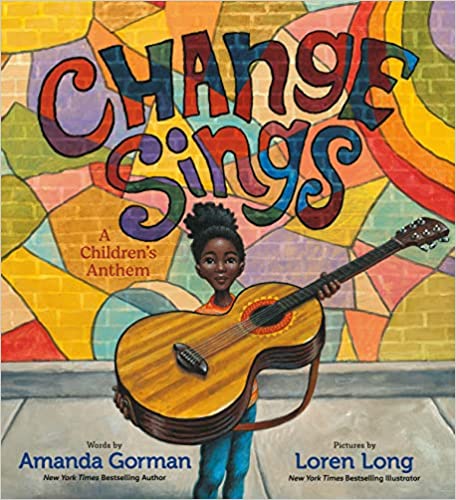
“Change Sings”
A Children’s Anthem, words by Amanda Gorman, pictures by Loren Long, both on the New York Times Bestselling list. Age range 4-8: As a young girl leads a cast of characters on a musical journey, they learn that they have the power to make changes – big or small – in the world, in their communities, and most importantly , in themselves. Change Sings is a triumphant call to action for everyone to use their abilities to make a difference.
Kayla’s Pick
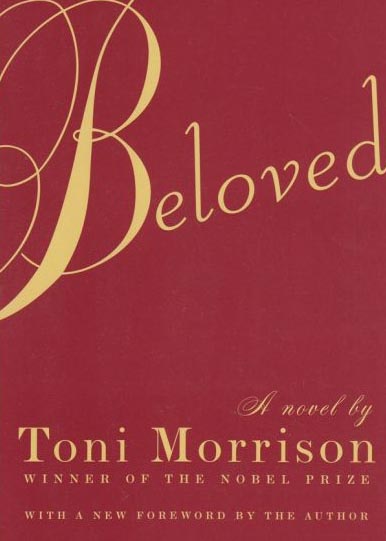
“Beloved”
Author: Toni Morrison
Though I read Beloved by Toni Morrison in high school, the story has always stuck with me. The novel talks about a former enslaved woman and her daughter’s life in 1873 in Cincinnati, Ohio. The story has two timelines and goes back and forth between the main character, Sethe’s past life enslaved in Kentucky and her life in 1873. The novel touches on themes of family and the role slavery plays in identity of those enslaved and free.

“Just Mercy”
Author: Bryan Stevenson
A memoir about Stevenson’s life as an attorney, the book follows his time helping Walter Mcmillian, a Black man who was framed for the murder of Ronda Morrison, who was convicted and sent to death row. And also his time starting a non-profit organization to help people on death row and people sentenced to life without parole. I think this book has information that is still really relevant today in African Americans’ fight for equality and justice.
Jack’s Pick
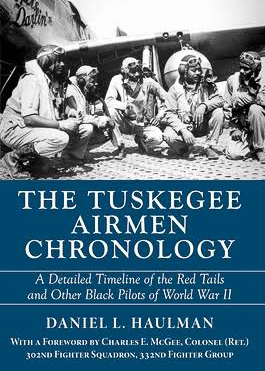
“The Tuskegee Airmen Chronology”
Author: Daniel L. Haulman (non-fiction)
My book is a detailed timeline of the Red Tails and other Black Pilots of World War II. With a Foreword by Charles E. McGee, Colonel (Ret.), 302 Fighter Squadron, 332nd Fighter Group.
The story of the Tuskegee Airmen, the first African American pilots in American military service, is a complex tapestry with many story threads. One story does not end when another begins. The stories unfolded simultaneously. This Tuskegee Airmen Chronology links the stories together, filling a crucial historiographical niche. All the important events in Tuskegee Airmen history are included.
Tina’s Pick
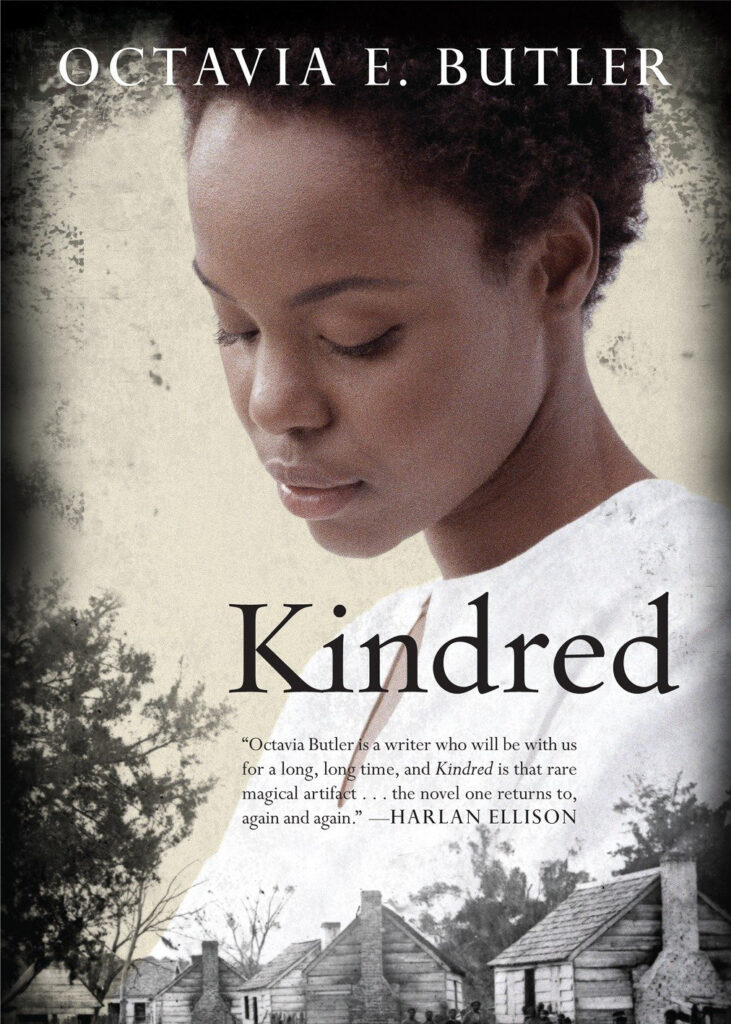
“Kindred”
Author: Octavia E. Butler (fiction)
The visionary author’s masterpiece pulls us—along with her Black female hero—through time to face the horrors of slavery and explore the impacts of racism, sexism, and white supremacy then and now.
Dana, a modern black woman, is celebrating her twenty-sixth birthday with her new husband when she is snatched abruptly from her home in California and transported to the antebellum South. Rufus, the white son of a plantation owner, is drowning, and Dana has been summoned to save him. Dana is drawn back repeatedly through time to the enslaved quarters, and each time the stay grows longer, more arduous, and more dangerous until it is uncertain whether or not Dana’s life will end, long before it has a chance to begin.
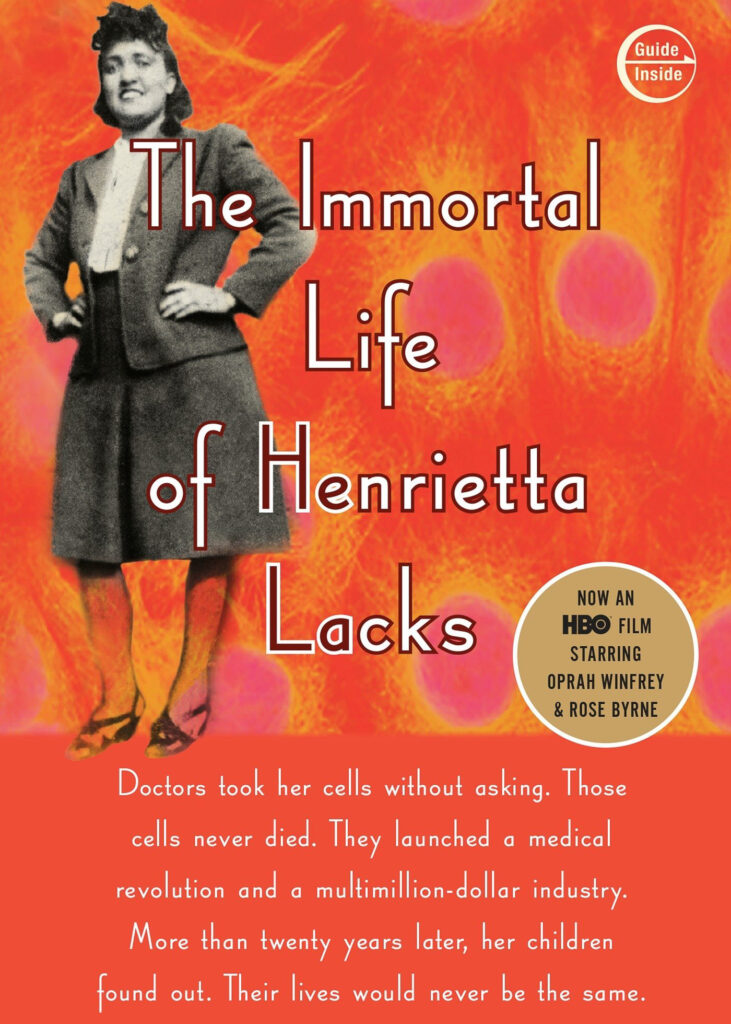
“The Immortal Life of Henrietta Lacks”
Author: Rebecca Skloot (non-fiction)
Her name was Henrietta Lacks, but scientists know her as HeLa. She was a poor Southern tobacco farmer who worked the same land as her enslaved ancestors, yet her cells—taken without her knowledge—became one of the most important tools in medicine: The first “immortal” human cells grown in culture, which are still alive today, though she has been dead for more than sixty years. HeLa cells were vital for developing the polio vaccine; uncovered secrets of cancer, viruses, and the atom bomb’s effects; helped lead to important advances like in vitro fertilization, cloning, and gene mapping; and have been bought and sold by the billions.
Yet Henrietta Lacks remains virtually unknown, buried in an unmarked grave.
Henrietta’s family did not learn of her “immortality” until more than twenty years after her death, when scientists investigating HeLa began using her husband and children in research without informed consent. And though the cells had launched a multimillion-dollar industry that sells human biological materials, her family never saw any of the profits. As Rebecca Skloot so brilliantly shows, the story of the Lacks family—past and present—is inextricably connected to the dark history of experimentation on African Americans, the birth of bioethics, and the legal battles over whether we control the stuff we are made of.
Verlena’s Pick
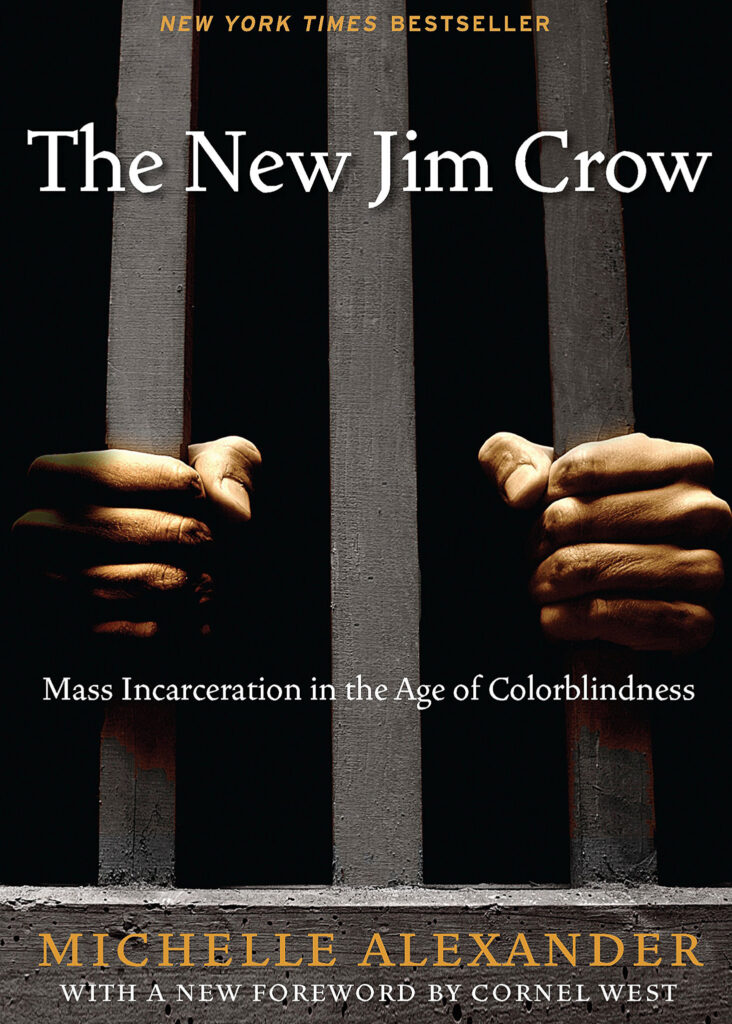
“The New Jim Crow”
Author: Michelle Alexander
The book articulates the crisis created by the phenomena of mass incarceration within the African American community. How the denial of your right to employment, housing, the right to vote, educational opportunities, food stamps, and other public benefits becomes legal. She shows with facts and data the brutal, debilitating impact on the lives of those who have been labeled “felon”. For me, it explained the four kinds of deflective, dysfunctional violence rampant in the African American community: 1. Oppression: the original violence; (2) Rebellion: Reactive violence to oppression; 3) Repression: Putting down the rebellion, usually via the military or police and (4) Deflective, Dysfunctional Violence: internalized rage turned upon itself.
I chose this book because I gained some insights on how the conditions of black people caught up in the criminal justice system came about; otherwise, I would have no way to know. There is no other way to know the why without facts and data, even if you experience it.
Mic’s Pick
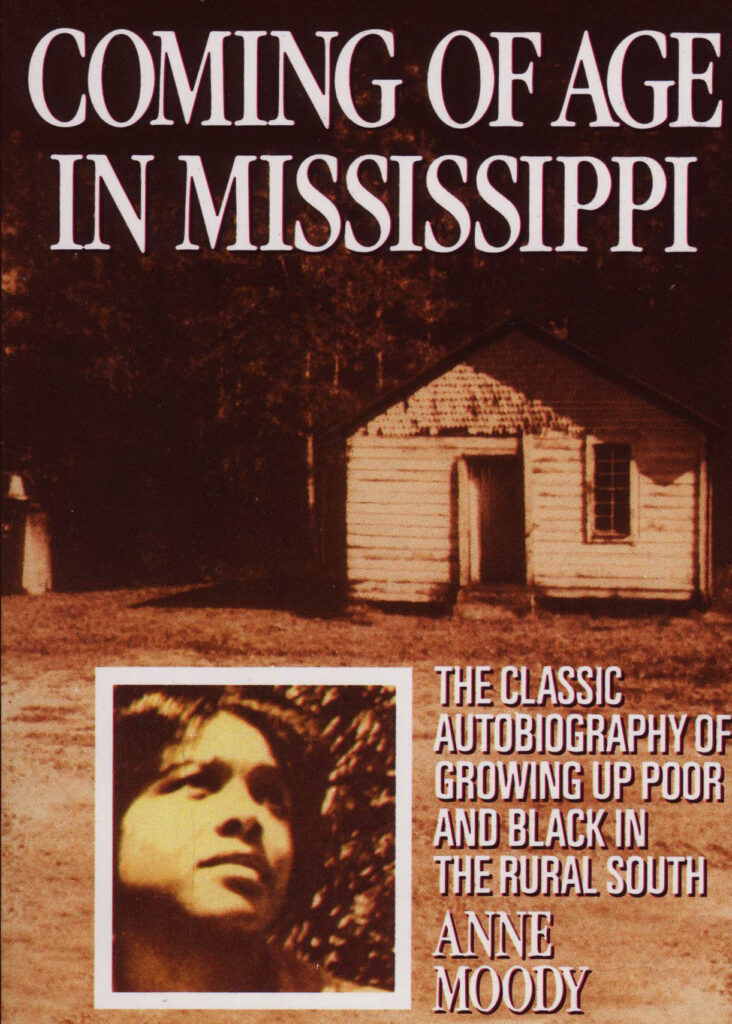
“Coming of Age in Mississippi”
Author: Anne Moody
This book is one I read a few years back that acted as a catalyst for me to know how to challenge my own point of view while gaining a deeper of understanding of awareness for my whiteness; I grew to know how to acknowledge how my whiteness shapes experiences different from my own, as well as my own experiences. Anne Moody shares her life story during the pre-civil rights era while articulating the experiences of a life under constant threat of white terror and deprivation. Not only does this book share a personal experience, it teaches an audience how individuals are shaped by their experiences. Moody powerfully shares her experiences as a child while showcasing how those experiences mature her to theorize the complexity of Black suffering because of unreasonable societal racial hatred. Coming of Age in Mississippi helped me to understand how new forms of white terror and anti-Blackness shift and change over time to continue to exist when they continue to be accepted by a majority. Moody’s writing shows how history is made.



